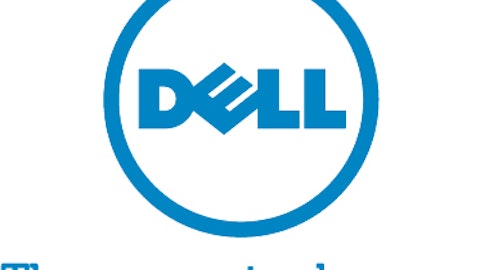The speculation of whether or not the Personal Computer can stay relevant is becoming a key in the debate over where to position an investment portfolio in a technology environment that is in constant flux. Recently, IDC’s report really put a lot of pressure on stock valuations, and the number is constantly being kicked around again.
Bloomberg reports that:
Tablet shipments are projected to grow 45 percent from this year to reach 332.4 million in 2015, compared with an estimated 322.7 million for PCs, according to Framingham, Massachusetts-based IDC. PC shipments may decline 7.8 percent this year, the worst annual drop on record, the researcher said, a revision from its prior projection for a 1.3 percent decrease.
The projected decline in PC shipments are keeping analysts on their toes lately, but rather than just looking at a projection from an independent research firm, we should also take into consideration the guidance different technology companies have offered.
Hewlett-Packard Company (NYSE:HPQ)’s somewhat negative projection
Hewlett-Packard predicts that it is going to report earnings of around $3.50 to $3.60 for the full fiscal year of 2013. The company’s projecting that earnings are going to decline 12%. Analysts anticipate sales to decline 8%.
So, it seems that Hewlett-Packard Company (NYSE:HPQ) confirms the suspicion that IDC has that desktop sales will continue to decline in the foreseeable future. But, if IDC’s suspicion is correct, then why is it that personal system sales at Hewlett-Packard only declined 2.2% year-over-year?
The very beginning of the year is the weakest season for computer shipments and sales. So, it is unlikely that it could get even worse than this, even if tablet shipments were to continue to rise.
Dell Inc. (NASDAQ:DELL) maybe did worse
Dell reported a 9% year-over-year decline in end-user-computing revenue. This is the weakest season of the year, and the company more or less validated the 8% decline IDC projected. That doesn’t necessarily mean Dell Inc. (NASDAQ:DELL) will continue this negative performance going forward, but it should be a point of concern.

Microsoft Corporation (NASDAQ:MSFT) provides no guidance on Windows 8
Well here’s the thing with Microsoft. The company provided no exact figure for how much the decline in traditional PC markets will hurt sales of the Windows operating system. However, the company expects growth in all of its other segments which include Servers and Tools, Microsoft Business, and Entertainment and Devices. Microsoft Corporation (NASDAQ:MSFT) is heavily diversified, giving it the ability to grow earnings even in an environment of declining desktop shipments.
Even Microsoft acknowledges the decline in PC shipments for the full-year. The problem comes from defining to what extent. Dell Inc. (NASDAQ:DELL) saw significant declines, but Hewlett-Packard Company (NYSE:HPQ) saw moderate declines. On the other hand, demand for Apple Inc. (NASDAQ:AAPL) Macs rose 7% for the full year.
Is there a silver lining to any of this?
I think that demand for computers will at some point stabilize, even if they were to decline. I can certainly agree that the demand for computing will decline over the short-term, but the death of the computer is pretty improbable. The computer comes with more power, screen space, and multi-faceted capabilities that make it easier for work-based users to work. Yes, certain functions don’t require the use of a full QWERTY keyboard, and I can agree that a tablet device can be more useful in certain instances. But at the same time, most can agree that the laptop or desktop computer will probably remain the primary office-based computing device.
Perhaps, the bigger issue with the computer could be more fundamentally linked to how the Windows ecosystem is set-up. The problem with PC computing is that it is extremely difficult to move files and programs from one computer to the next computer. Apple Inc. (NASDAQ:AAPL) has done its best to make it as simple if not as easy as possible for users to upgrade computers.

Apple reported a gain in shipments, but here’s the kicker; Windows-based computers witnessed a decline in unit growth, excluding Lenovo. The reason for this may have to do with the easiness of upgrading Apple products. Apple Inc. (NASDAQ:AAPL)’s iCloud, when combined with the Apple ID, makes it easier for users to transfer programs, files, and music libraries from one computing device to the other. This makes it easier for Apple users to transition from a desktop to a tablet as you can have the same exact computer, preferences, and access to files between both computers.
Microsoft Corporation (NASDAQ:MSFT) has at least attempted to address the issue with Windows 8. Windows 8 is a very usable and versatile computing experience. It didn’t take long for me to get used to it. The compatibility between Windows 8 devices improved as the user interface and application run seamlessly between a phone, tablet, and desktop computing device.
Conclusion
I think that PC shipments are suffering because of Microsoft Corporation (NASDAQ:MSFT)’s business strategy rather than the changes in user preferences. Consumers might be willing to buy both a desktop computer and mobile computing device. Both products can co-exist because consumers can afford to have both. The problem comes when buying an extra device is easier than upgrading a pre-existing one.
The problem with Windows 8 is that you can’t port your old Windows 7 programs over to Windows 8. You would have to spend hours installing programs, and more specialized industry applications may not be found on Windows 8 app store, making it difficult for corporations to move into Windows 8. Maybe, the computer isn’t utterly dead, but what’s dead at Microsoft Corporation (NASDAQ:MSFT) is envisioning a world where upgrading a computer should be easy.
Alexander Cho has no position in any stocks mentioned. The Motley Fool recommends Apple. The Motley Fool owns shares of Apple and Microsoft.
The article Is This Another Factor That’s Hurting PC Sales? originally appeared on Fool.com.
Copyright © 1995 – 2013 The Motley Fool, LLC. All rights reserved. The Motley Fool has a disclosure policy.





